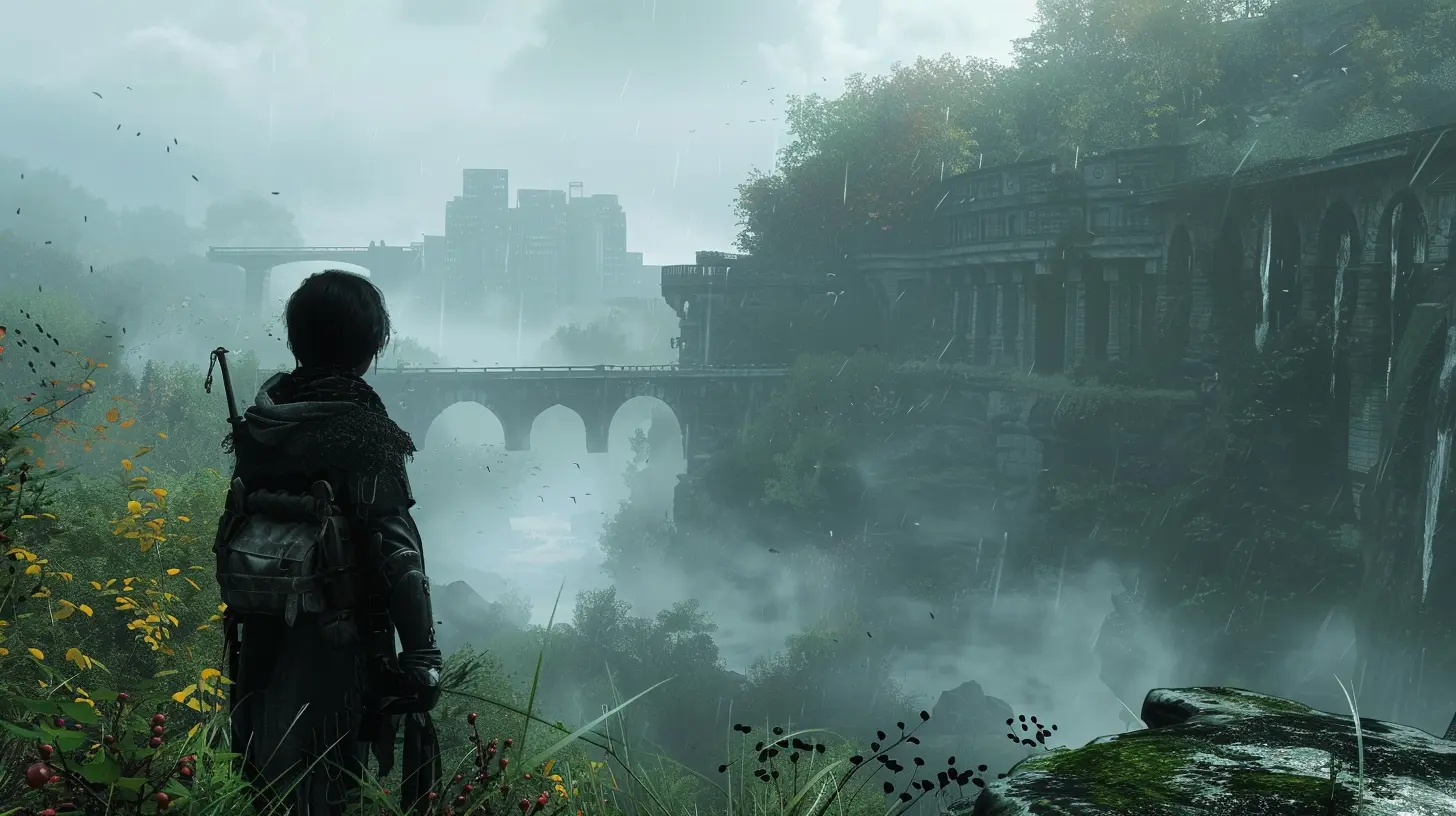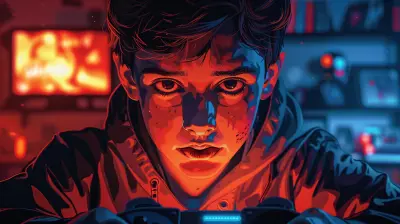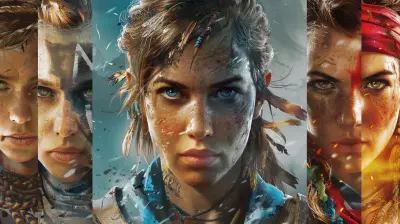Breaking Down the Game Award Categories
28 May 2025
Video games have evolved into one of the most creative and competitive industries out there. With so many incredible titles being released each year, it's no surprise that we now have a highly celebrated event to honor them: The Game Awards. If you’re a gamer—even a casual one—it’s hard not to get excited about it. But have you ever wondered what goes into those award categories? Why do they matter? And more importantly, what do they really mean? Let’s break it down together.
Why Game Awards Are a Big Deal
Before we dive into the nitty-gritty of the categories themselves, let’s take a moment to appreciate why these awards even exist. For starters, they celebrate the hard work and creativity of developers, writers, designers, and musicians in the gaming industry. It’s like the Oscars, but with more pixelated explosions and fewer black ties.But beyond that, the awards also serve as a snapshot of where the gaming industry is at. They highlight trends, showcase innovation, and—let’s be real—give us something to argue about online. (Isn’t it fun debating whether your favorite game got robbed?)
Breaking Down the Major Game Award Categories
Now, let’s get to the good stuff. There’s a long list of categories at The Game Awards, but I’ll focus on the most popular ones and try to make them a bit less confusing.1. Game of the Year (GOTY)
This is the big one. The crown jewel. Think of the GOTY award as the equivalent of Best Picture in the movie world. Winning this means your game wasn’t just good—it was a cultural phenomenon.The ideal GOTY winner nails everything: gameplay, story, graphics, sound, and impact on the community. It’s the game people won’t stop talking about for years. Titles like The Last of Us Part II and Elden Ring have snagged this award in recent years. And let’s be honest: whenever your favorite game doesn’t win, you swear the voting process was rigged, right?
2. Best Game Direction
This one’s all about leadership and vision. It celebrates the developers who push boundaries and create something truly unique. Think of it as the "Best Director" award in film. It rewards bold ideas, innovative mechanics, and masterful storytelling.For example, Hideo Kojima and his game Death Stranding were praised for their out-of-the-box ideas. Love it or hate it, you can’t deny the sheer creativity behind lugging packages across a post-apocalyptic wasteland.
3. Best Narrative
Let’s face it—nobody loves a boring story. This category highlights games with gripping plots. Whether it’s a tear-jerking tale or a mind-bending mystery, the story should keep you hooked till the end.Games like God of War and Red Dead Redemption 2 have smashed this award because their stories hit us right in the feels. (Seriously, who didn’t cry during Arthur Morgan’s final moments?)
4. Best Art Direction
Ever played a game so stunning that you paused just to admire the scenery? That’s what this category is all about. Best Art Direction rewards games with jaw-dropping visuals or a unique art style.It’s not always about photorealism either. Sometimes, it’s about the vibe. Games like Ori and the Blind Forest and Hollow Knight may not have hyper-realistic graphics, but their art styles are so distinct, they’re practically timeless.
5. Best Score and Music
What’s a great game without a killer soundtrack? This award goes to the games that create music you hum long after you’ve put down the controller. Whether it’s intense battle themes or soothing melodies, music plays a huge role in setting the mood.Take DOOM Eternal, for example. Its heavy metal tracks get your adrenaline pumping like nothing else. And let’s not forget about games like The Legend of Zelda with its iconic orchestral pieces that tug at your heartstrings.
6. Best Performance
This one’s for the actors who breathe life into the characters we love (or love to hate). It’s like awarding an Oscar to a voice actor or motion capture artist.Think of performances like Ashley Johnson as Ellie in The Last of Us or Christopher Judge as Kratos in God of War. Their voices, facial expressions, and emotional depth bring these characters to life.
7. Best Indie Game
Indie games are like the underdogs of the gaming world. They’re often made by smaller teams with limited budgets but infinite passion. This category celebrates the little guys who manage to blow us away with their creativity.Games like Hades and Celeste have taken the indie scene by storm, proving that you don’t need big-name publishers or million-dollar budgets to craft something incredible.
Esports and Growing Niches
It’s not just traditional games that get their moment in the spotlight. Esports categories have become more popular, honoring competitive games like League of Legends, Valorant, and CS:GO. There’s even an award for the best Esports player (so yes, your favorite pro could win!).But wait—it doesn’t stop there. The Game Awards also include categories focusing on accessibility, mobile games, VR/AR, and even creator content. Streaming and social media are reshaping how we interact with games, so these awards acknowledge that new reality.
Why Categories Matter
“So what?” you might ask. Why do all these categories even matter? Well, think of them as a way to celebrate gaming in all its diversity. Not all games fit into the same mold, and that’s awesome. By having separate categories, The Game Awards ensure that everyone—from big-budget developers to small indie teams—gets their moment to shine.And for us players, it’s a fantastic way to discover games we might’ve missed. Ever heard of a game winning Best VR/AR and thought, “Hmm, maybe I should give that a shot”? Those categories are like cheat codes for finding hidden gems!
The Controversy That Keeps Things Spicy
Of course, no award show is perfect. Fans often argue about which games deserve to win versus which ones actually do. GOTY debates get heated, with fans camping out on Twitter to defend their favorites. And let’s not even get started on snubs—remember when Cyberpunk 2077 failed to win big after all the hype?But hey, those passionate debates are part of the fun. After all, what’s the gaming community without a little drama?
Wrapping It Up
At its core, The Game Awards celebrate what we love most about gaming: creativity, innovation, and storytelling. Whether your favorite game wins or not, these categories remind us why we fell in love with gaming in the first place. So next time you watch the show, take a moment to appreciate the variety and craftsmanship behind the games being honored.Plus, who doesn’t love watching a room full of developers cheer when they get their moment in the spotlight? It’s like watching someone level up in real life.
all images in this post were generated using AI tools
Category:
Game AwardsAuthor:

Lana Johnson
Discussion
rate this article
3 comments
Ian Webster
I'm intrigued by how the Game Award categories reflect industry trends! What criteria do you think most influence the judges' decisions in each category?
June 18, 2025 at 3:58 PM

Lana Johnson
Thank you for your interest! The judges typically consider innovation, gameplay quality, narrative depth, and overall impact on the gaming community when evaluating entries in each category.
Peyton Clayton
This breakdown offers essential insights into the Game Award categories, highlighting key moments and trends. Understanding these distinctions is crucial for any gaming enthusiast.
June 1, 2025 at 3:17 PM

Lana Johnson
Thank you! I'm glad you found the breakdown insightful—understanding these categories really enhances our appreciation of the gaming landscape.
Juniper McMillen
Great breakdown of the Game Award categories! It’s exciting to see how diverse and innovative the gaming industry has become. Each category highlights the hard work and creativity of developers. Looking forward to seeing who takes home the awards this year!
May 30, 2025 at 4:31 AM

Lana Johnson
Thank you! I'm glad you enjoyed the breakdown. The innovation in the gaming industry truly makes these awards exciting!



